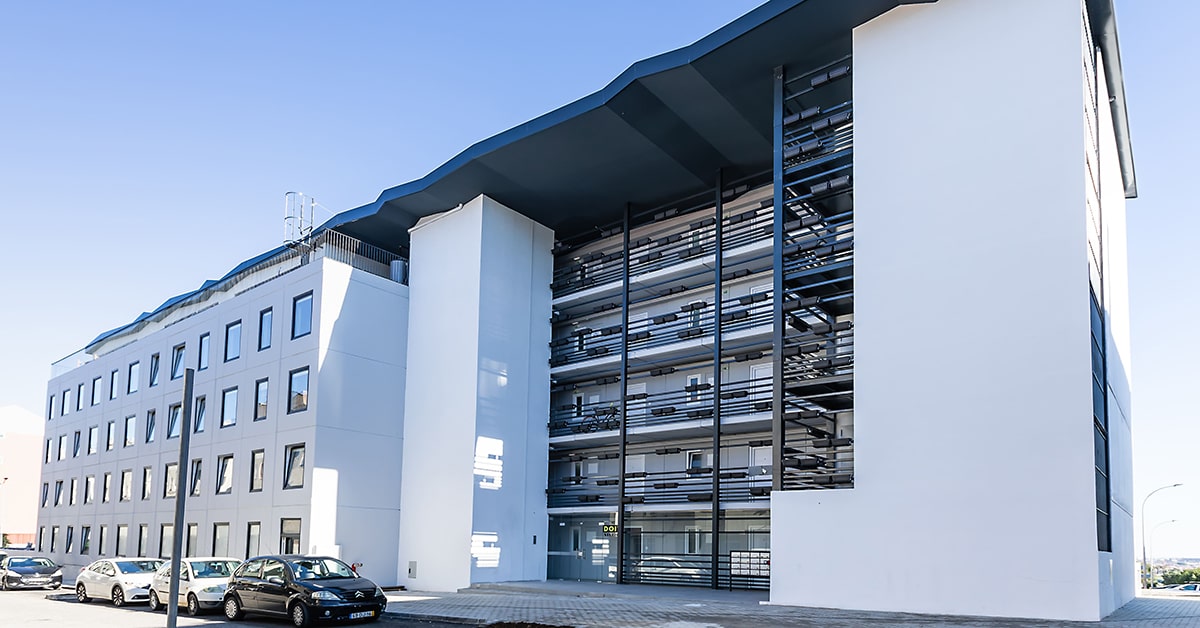Team coordinated by Professor Fernando Branco, in collaboration with the company DDN, wins prize in the “Inovação na Construção” category of the V.ª Edição dos Prémios do Imobiliário

Paço dos Duques, in Guimarães, hosted on October 19th the gala of the V.ª edição dos Prémios do Imobiliário, organized by SIC Notícias and Semanário Expresso. A team coordinated by Professor Fernando Branco, which includes Professors João Ferreira and João Correia from DECivil and Professor João Sequeira from the Department of Electrical and Computer Engineering (DEEC), is developing the SIMBA project with the company DDN, which won the category “Inovação na Construção”. It is a Construction System of Self-Supporting Reinforced Concrete Blocks.
Professor Fernando Branco describes this system as
a revolution in building construction

"Around 3000 years BC, in Sumer, the first houses were built by raising the walls, placing brick upon brick. Today, 5000 years later, houses continue to be built with the same intensive use of bricks and with the same demands in terms of labor. Despite the innovations, whether in structural solutions or in partial prefabrication of components, the truth is that the building construction industry continues to be essentially... a manufacture."
"Currently, in buildings, costs are distributed roughly equally between materials and labor. To solve the housing problem, cost reduction will have to be achieved by essentially focusing on labor costs, as the cost of materials is highly optimized. To reduce labor, the natural solution is to adopt Henry Ford's methodology in the production of his Ford T, that is, to produce buildings on a factory assembly line, where workers, in an environment with quality and controlled activities (or using robots), produce the various components that are put together into housing blocks with final finishes, ready for use. A true BUILDING FACTORY. These blocks, after being transported, are interconnected in the building with the same monolithism as in current construction, resulting in a final solution with significant cost reduction, with great speed of execution... and without bricks."

Bearing in mind the objectives of Programa Mais Habitação, it is this commitment to a radical change in the construction of buildings that is being implemented in the SIMBA modular construction project (DDN-IST/CERIS), which has already resulted in a prototype building in use, the residence for the Serviços Sociais da Polícia de Segurança Pública of Amadora. This is the first completed project of the various housing and hotel projects underway with the SIMBA modular system, see vídeo.
DECivil congratulates the Professors and their partners at DDN involved in this award, and wishes them all the best.


